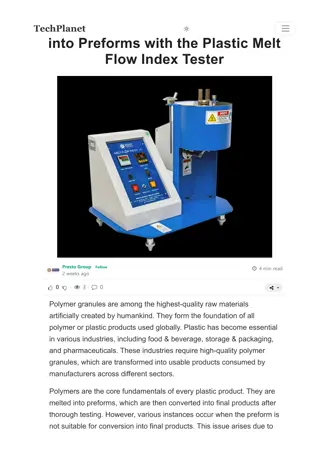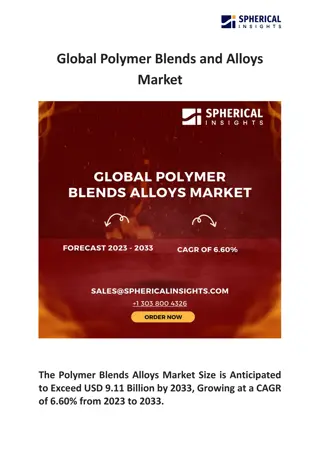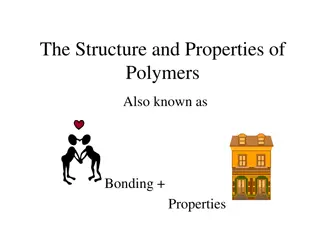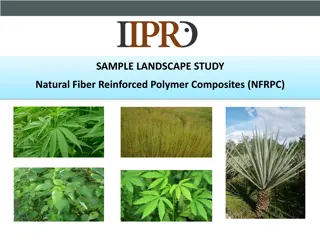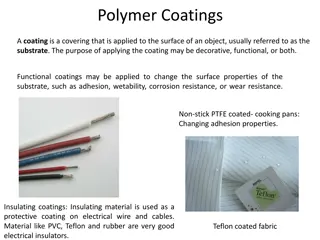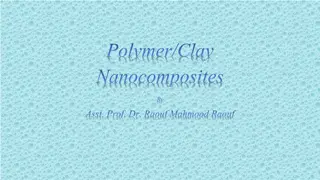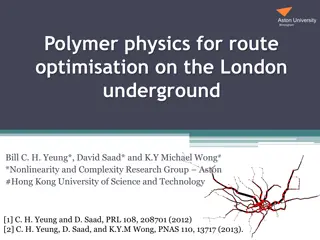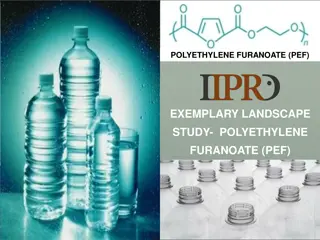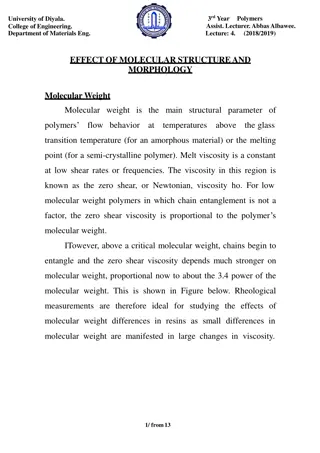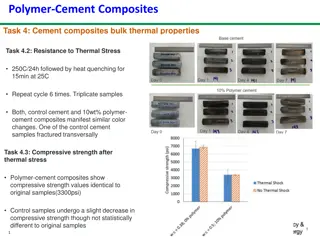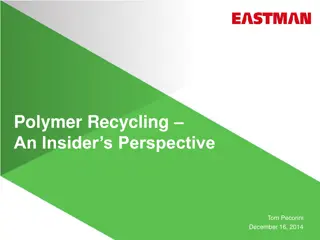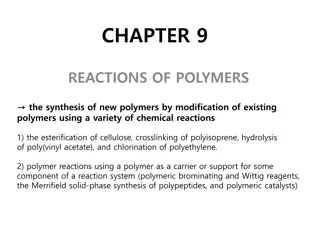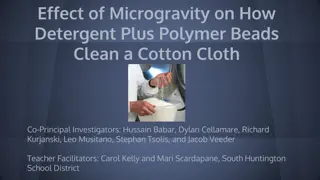Polymer Chemistry Fundamentals
In polymer chemistry, molecules form chain-like structures known as polymers. This article delves into the composition, history, and structure of polymers, including unsaturated hydrocarbons and aromatic hydrocarbons like benzene. Learn about natural polymers, synthetic polymers, and the fundamental properties of these large molecules.
Download Presentation

Please find below an Image/Link to download the presentation.
The content on the website is provided AS IS for your information and personal use only. It may not be sold, licensed, or shared on other websites without obtaining consent from the author.If you encounter any issues during the download, it is possible that the publisher has removed the file from their server.
You are allowed to download the files provided on this website for personal or commercial use, subject to the condition that they are used lawfully. All files are the property of their respective owners.
The content on the website is provided AS IS for your information and personal use only. It may not be sold, licensed, or shared on other websites without obtaining consent from the author.
E N D
Presentation Transcript
Polymer Structure (1) Dr. Raouf Mahmood
Polymers What is a polymer? Very Large molecules structures chain-like in nature. Poly mer many repeat unit repeat unit repeat unit repeat unit H H H H H H H H H H H H H C H C CH3H H H H C H C CH3 C C C C C C H H H C C C C C C H H C C CH3 H H H H H H Cl Cl Cl Polyethylene (PE) Polyvinyl chloride (PVC) Polypropylene (PP) Adapted from Fig. 14.2, Callister 7e.
Ancient Polymer History Originally natural polymers were used Wood Cotton Wool Leather Rubber Silk
Polymer Composition Most polymers are hydrocarbons i.e. made up of H and C Saturated hydrocarbons Each carbon bonded to four other atoms H H H C C HH H CnH2n+2
Unsaturated Hydrocarbons Double & triple bonds relatively reactive can form new bonds Double bond ethylene or ethene - CnH2n H H C C H H 4-bonds, but only 3 atoms bound to C s
Unsaturated Hydrocarbons Triple bond acetylene or ethyne - CnH2n-2 H C C H
Unsaturated Hydrocarbons An aromatic hydrocarbon (abbreviated as AH) or arene is a hydrocarbon, of which the molecular structure incorporates one or more planar sets of six carbon atoms that are connected by delocalised electrons numbering the same as if they consisted of alternating single and double covalent bonds
Unsaturated Hydrocarbons Benzene, C6H6, is the simplest and first recognized aromatic hydrocarbon
Unsaturated Hydrocarbons What is actually found is that all of the bond lengths in the benzene rings are 1.397 angstroms This is roughly intermediate between the typical lengths of single bonds (~1.5 angstroms) and double bonds (~1.3 angstroms)
Isomerism Isomerism two compounds with same chemical formula can have quite different structures/atomic arrangement Ex: C8H18 n-octane H H H H H H H H H = H C H C H C H C H C H C H C H C H H3C CH2CH2CH2CH2CH2CH2CH3 ( CH3 )6 H3C CH2 2-methyl-4-ethyl pentane (isooctane) CH3 H3C CH CH2CH CH3 CH2 CH3
Chemistry of Polymers Free radical polymerization H H H H + initiation R C H C H R C H C H free radical monomer (ethylene) H H H H H H H H + propagation R C H C H C H C H R C H C H C H C H dimer Initiator: example - benzoyl peroxide H H H C H O = 2 C H O O C R 2 H
Chemistry of Polymers Adapted from Fig. 14.1, Callister 7e. Note: polyethylene is just a long HC - paraffin is short polyethylene
Traditionally, the industry has produced two main types of synthetic polymer plastics and rubbers. Plastics are (generally) rigid materials at service temperatures Rubbers are flexible, low modulus materials which exhibit long-range elasticity.
Plastics are further subdivided into thermoplastics and thermosets




